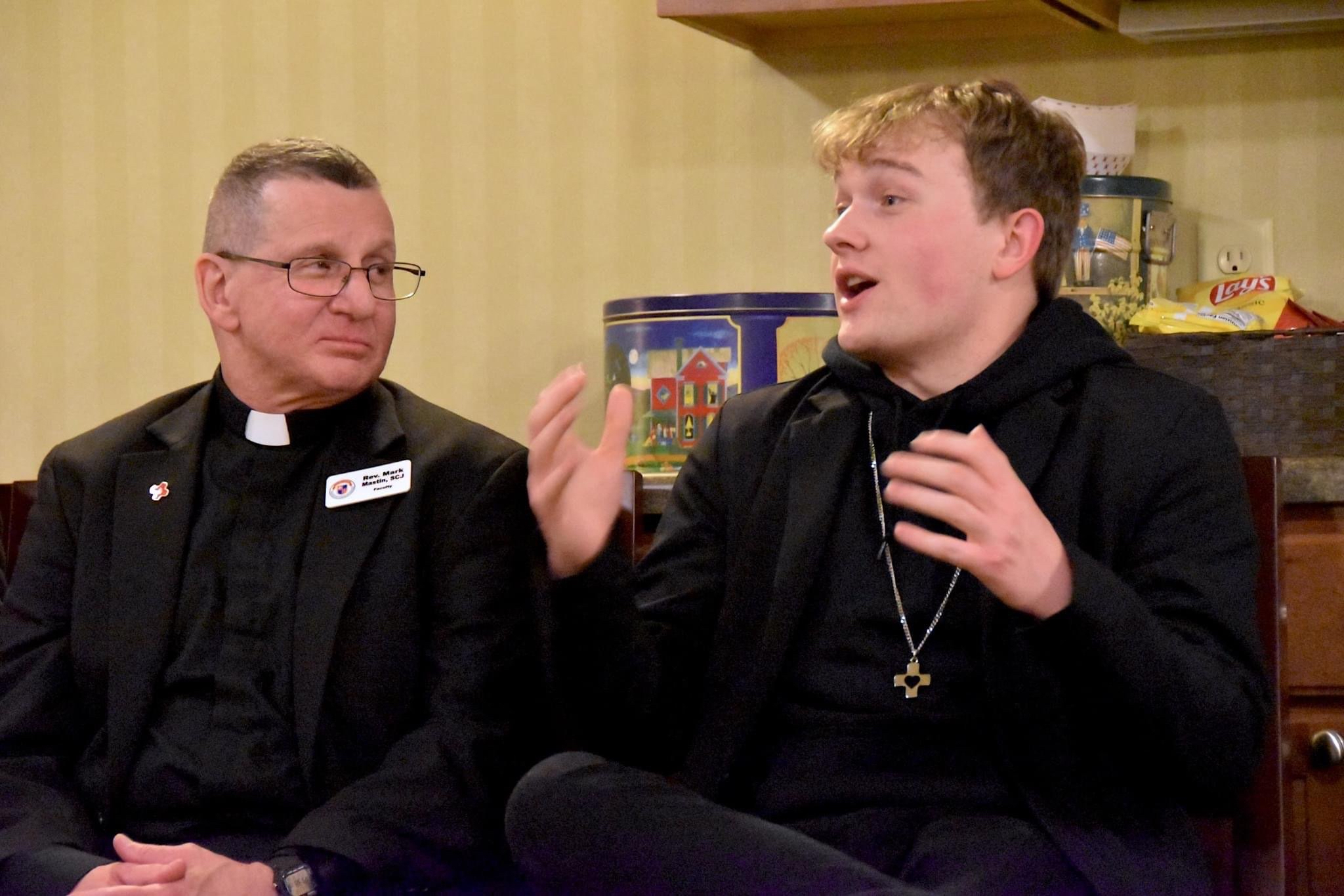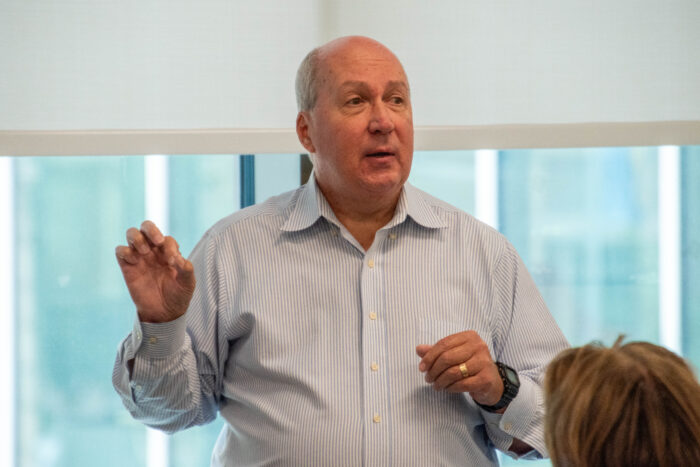The eldest of three, Anselm Smith, Arts ’23, had an ecumenical upbringing that included being born Presbyterian, raised nondenominational and confirmed Missouri Synod Lutheran in his home state of Texas.
Coming from a “run-of-the-mill,” semi-evangelical family, Smith experienced what he calls a typical Southern Baptist-style worship.
“Our Masses were very low on liturgy; [they] included rock bands, flashing lights and dynamic preaching,” Smith says. “Those sorts of statements of the Evangelical community.”
However, Smith was battling an interpersonal conflict. He was frustrated with what he viewed as incongruencies in the Lutheran faith, particularly its views around traditional marriage. So much so, in fact, that he entered into a year where he identified as a “Christian agnostic.”
Smith’s Christian beliefs still glowed inside him, waiting for the opportunity to shine bright once again. And after a year of discernment, a newfound fascination with Asian and European history — with a special interest in author Shūsaku Endō — led him to Roman Catholicism and thoughts of entering the priesthood.
“As I began to study, I learned about the Church in the 11th and 12th centuries and how different it was,” Smith says. “Nobody was preaching all the time; there was a liturgy. I was awed by the beauty.”
He enjoyed the moral consistency of the Church, the moral legitimacy of the priesthood and the focus on the sacraments.
Slowly, Smith began looking into entering the Dehonian congregation. It wasn’t until a Steubenville Youth Conference in Dallas, Texas, that he truly had his coming to God moment.
“Throughout my conversion process, I was always attracted to the priesthood. But during one of the Eucharistic Adoration Processions at the conference, I was struck emotionally,” Smith says. “I asked God to show me he is there, and as the priest passed by me, I was overcome by emotion and — in recognizing my own ineptitude — collapsed to the floor and began crying.
“When I got back up, I felt an immense desire to hold the monstrance myself and was clear that I wanted to pursue a religious life.”

Vocation, life at Marquette
Smith walked onto campus at Marquette in 2018 eager to learn and to deepen his faith.
Campus Ministry was a significant influence for him.
Smith says he credits Campus Ministry with helping him rediscover his passion for singing, affirming his skills and encouraging him to do it more.
“Music is probably the most important form of prayer for me,” he says. “My engagement with that is critical and I’m glad Campus Ministry was able to facilitate that.”
For Smith, the Campus Ministry office was also his home away from home.
“Whether I had just gotten done with class or if I wanted to hang out somewhere, Campus Ministry was always there and I was able to find something to do and people to fit in with,” Smith says. “Campus Ministry really was my home on campus and I’m really going to miss that.”
Smith took a gap year in 2021-22 to take his novitiate, and on Aug. 15, 2022, he took his vows to officially enter the Dehonian formation.
As for what he is looking to achieve in his formation, Anselm says he has drawn inspiration from a lighthearted phrase: there’s never vacation from vocation.
“Our vocation is never stagnant; there’s always a natural growth occurring inside us,” Anselm says.
As he begins the next step in his journey by entering the seminary after Commencement, Smith says he wants to focus on global ministry and help his community through the vocation crisis.
“I hope by being a young person in my community I can bring some new ideas and ways of thinking without the scars of the past,” Smith says. “I hope I can offer new perspectives and ways of doing things that can give a creative new approach to reinvigorating the spiritual life of Catholics and people my age. I found value and meaning in the Church and enough so that I’ve tentatively dedicated my life to it.
“If someone like me can find that meaningful and impactful, I don’t see why other people can’t.”



